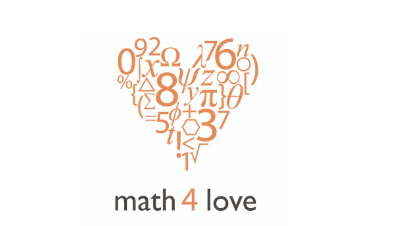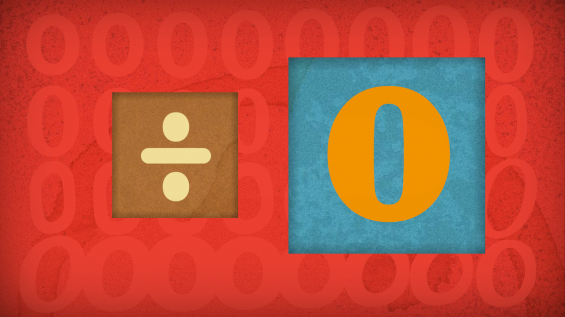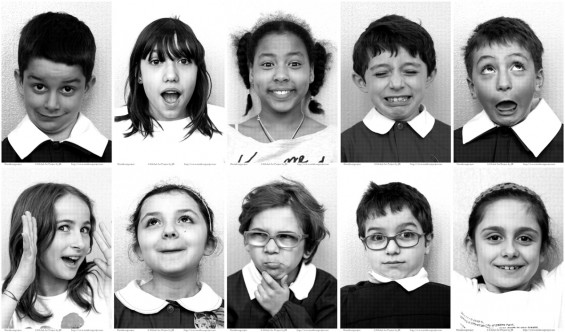
How we can fix math education through play
Math tends to inspire groans, moans and a fair amount of anxiety. But is there any way to make math enjoyable? Or, dare we say … fun? First, we have to heal the generational trauma, says educator and puzzle aficionado Dan Finkel. We sat down with Finkel to talk about how to fix mathematics education and how his organization, Math 4 Love, aims to help.
The problem: a broken system
What problems were you seeing as a math educator?
Fundamentally, I was seeing a huge disconnect between the sense of the beauty and the excitement and the dynamism of mathematics that I had known in my life, and what other people got. Most people just have such a negative experience with it. I don’t think we’re going to see math education magically get better. It’s a long-term, slow-to-change problem around a system with a lot of inertia.
“Somehow we found a way to use math to make everyone’s life worse. It’s done damage to whole generations.”
Math is this subject that is one of the most beautiful, powerful, empowering things. It’s part of your inheritance as a human being — like art and music. And it should only make your life better. Instead, somehow, we found a way to use it to make everyone’s life worse. It’s done damage to whole generations. So it feels like it’s this quiet tragedy that plays out, and we need to figure out how to just get in there and interrupt the cycle. There’s so much good and so much joy that’s waiting to be unleashed.
“If you can give students a really positive experience as their foundational experience, that actually sustains them as they go into middle and high school and beyond.”
That’s really the challenge — if I go into a group of teachers and I say “I’m going to share what’s beautiful and wonderful about mathematics”– if you’ve never had that experience, you literally just think I’m talking gibberish. Because to them, that’s not what math is. Math is the thing that’s made them cry when they were a sixth grader. So that fundamentally is, from my point of view, the largest structural impediment. We need as a culture to give people positive experiences with mathematics.
“There’s no teacher who wants their students to not like math; everybody wants their kids to have a positive experience with it. But, again, if you haven’t had that yourself, what does that even mean?”
It’s almost like a kind of therapy. And people need a human being with them holding their hand, just for the first time through because it’s so traumatic. That is the difficulty. There’s no teacher who wants their students to not like math; everybody wants their kids to have a positive experience with it. I feel like right now the most anyone can reasonably hope for is one really inspired teacher every 3 to 5 years and that’s enough to keep the spark alive. And what’s sad is that often we don’t even get that.
The solution: make math fun again
Math 4 Love: bring play into education
What was your inspiration to start Math 4 Love?
I started blogging under the name Math 4 Love. It felt like this was a problem that I was ready to take on: trying to communicate what mathematics could be, and what the possibilities for teaching and learning it could be. To give teachers and parents and students a positive experience. And also to provide a kind of pathway towards helping teachers transform what they’re actually doing in the classroom.
 There’s three main things we do at Math 4 Love. We work with teachers and run workshops, and go to classrooms and run demo lessons. We write curriculum; we’ve written the summer intervention program that Seattle public schools use for their Summer Staircase program. The idea is, it’s a play-based intervention. You get kids playing with math at a young age. It actually allows them to learn more deeply. We have two math games, one is called Prime Climb, the other is called Tiny Polka Dot. If we can get kids and families to see math as something they can play with, it’s a totally different way to interact.
There’s three main things we do at Math 4 Love. We work with teachers and run workshops, and go to classrooms and run demo lessons. We write curriculum; we’ve written the summer intervention program that Seattle public schools use for their Summer Staircase program. The idea is, it’s a play-based intervention. You get kids playing with math at a young age. It actually allows them to learn more deeply. We have two math games, one is called Prime Climb, the other is called Tiny Polka Dot. If we can get kids and families to see math as something they can play with, it’s a totally different way to interact.
“Get kids playing with math at a young age. It actually allows them to learn more deeply.”
What do you think it is about games and puzzles that make them such effective teaching tools?
One of the reasons that there’s a problem is people basically say, “Ignore your own common sense. Ignore your way of doing things. I’m going to just show you this method. Don’t worry about why it works, just memorize it, and then you’ll get the right answers.” But mathematics is a way of supercharging your common sense. And that means it needs to start with common sense. The way that you create ownership is often through play. It’s counterintuitive in a way because we have this weird cultural bias about how when you’re playing you’re not learning. But that couldn’t be further from the truth. Playing is nature’s way of helping you to learn.
“We have this weird cultural bias about how when you’re playing- you’re not learning. But that couldn’t be further from the truth. Playing is nature’s way of helping you learn.”
So when we have games and we have puzzles as something we’re doing in the classroom, we’re extending an invitation saying “Hey, play with this, make it yours. Make this subject belong to you. Make it something that you own.” What teachers, both with our games and also the puzzles, tell me over and over again is “I threw this puzzle out to the kids and I was just blown away by all the stuff that they came up with.” It suddenly unleashes that sense of personal relationship, a playful relationship with a problem, and that generates the engagement and sense of ownership, which is what really does transform students’ relationships with the subject.
“It’s like having the experience of “do I get to be the one who shows you the color yellow?” I get to add this whole dimension to your life. There are just not many places where we get to do that. That’s how teaching math can be.”
Watch Dan Finkel’s TEDx talk here:




